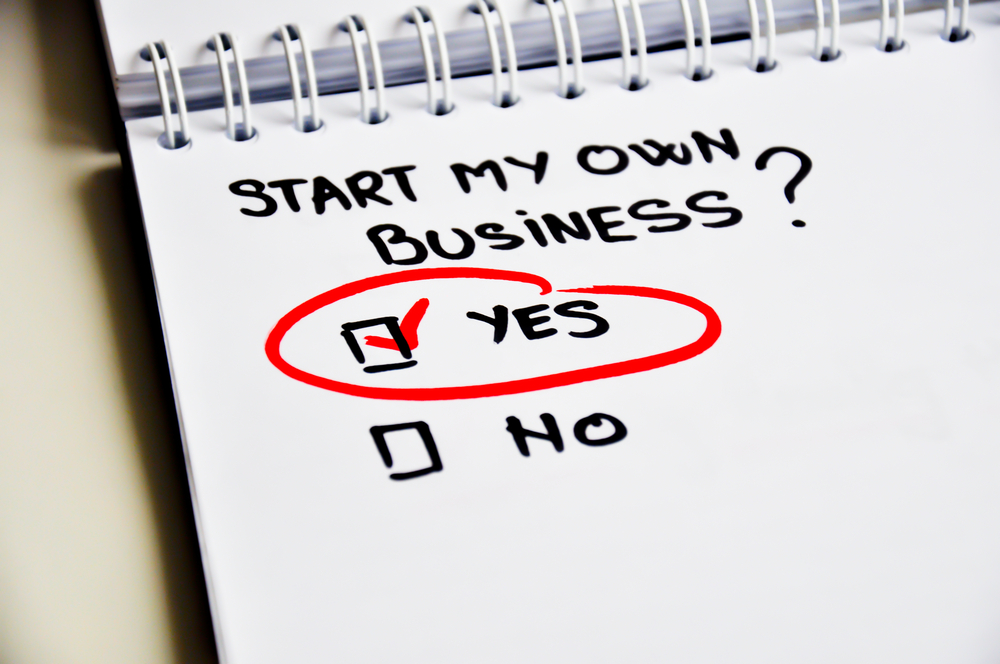Not every graduate is cut out to work for somebody else; there are maverick souls who will succeed or fail on their own terms, and who will never feel completely comfortable working for the Man’. New small businesses have a very high failure rate – over 50 per cent – but that will never (and nor should it) dissuade those imbued with the entrepreneurial spirit from trying. Nevertheless, it is a big step, both personally and financially, and requires serious consideration.
Why do people start their own business?Most entrepreneurs gain experience working for others, amassing knowledge and skills in their area of expertise, before striking out on their own. Often, they will have noticed a gap in the market during their employment, and will seek to capitalise on the commercial opportunity by developing an innovative idea or solution. Constraining issues motivate other small business starters; they may find that responsibilities keeping them at home leave a home-based business as the only viable option for paid work, or similarly, people who live a long distance from employment centres. Another common type of entrepreneur is the person who is pursuing his/her passion by making it into a business. These creative individuals set up businesses in art, crafts, web design, and a huge variety of other ventures.
The pros and cons of starting a business
Guides to starting a business often refer to the freedom available to entrepreneurs as a major benefit of this option – the freedom to decide when to work, the type of work to do, and so on. In reality, however – especially in the early stages and despite best-laid preparations – many small businesses require a gruelling amount of labour in order to get off the ground. The freedom mentioned usually arrives with success and an increased workforce.
Other disadvantages include the lack of employment benefits such as paid holidays, sick pay and pension scheme. Small businesses are notoriously vulnerable – one look at how quickly the shop-fronts change on Irish main streets will tell you that – and profits can be quite low during the initial period, because you must invest to succeed. The major benefit of having your own business is the tremendous motivation and job satisfaction that comes from being independent and making your own way in life. An immense pride can be gleaned from the knowledge that you have built a thriving enterprise ‘with your own hands’. The money gained from your success is not to be sniffed at either!
What you need to succeed
Entrepreneurs are more likely to succeed if they have certain personal qualities: drive and determination, good organisational skills, self-discipline, self-motivation, sound business sense and an in-depth knowledge of their chosen industry. Thankfully, you need not be born with all these qualities; they can be gained during your educational and professional careers. Equally as important is a good business idea.
Shell LiveWIRE is a UK organisation that helps young people to start businesses.
BRIGHT is the snappy acronym it uses to capture the key ingredients to a successful business idea:
Business-Orientated – the whole point of the exercise
Realistic – a necessity for success
Innovative – customers are always interested in new things
Genuine – your business must meet an existing and real need
Honest – to yourself and your planned customers
Timely – will someone else get in ahead of you?Not all new businesses require strong innovation; franchises are a very popular option for young entrepreneurs. They have the benefit of supplying a well-worked and proven business plan, while also maintaining a sense of independence. Once you have a viable business plan, there are numerous organisations in Ireland that provide guidance and funding to new businesses.
Here is a small sample:
Enterprise Ireland – www.enterprise-ireland.com
County & City Enterprise Boards – www.enterpriseboards.ie
Educucational Path
The typical Irish entrepreneur is 25 to 34 years old, has experience of working for others and is, most importantly in the context of the 3rd Level Guide, well-educated.
Certain courses are available that are directly related to developing your own business, such as Retail Enterprise Management (Dublin Institute of Technology), Business Studies – Enterprise (Dun Laoghaire Institute of Art, Design & Technology), and International Tourism & Hospitality Enterprise (Letterkenny Institute of Technology). However, any standard Business Studies course will provide good preparation for becoming an entrepreneur.












Comments